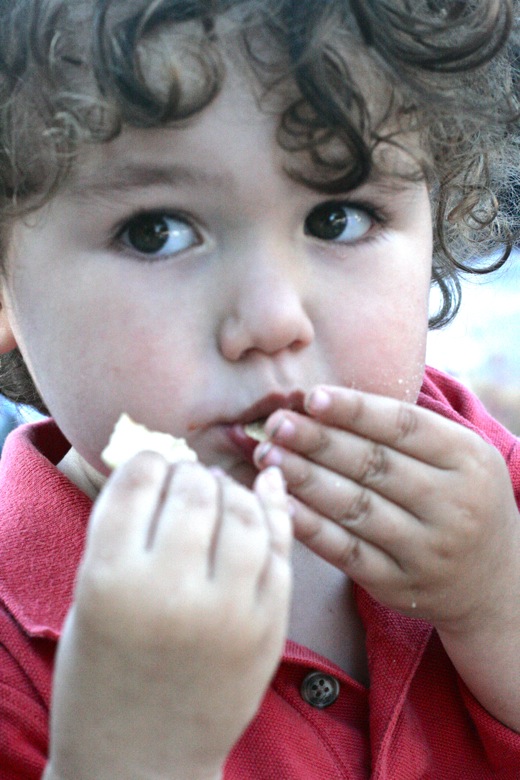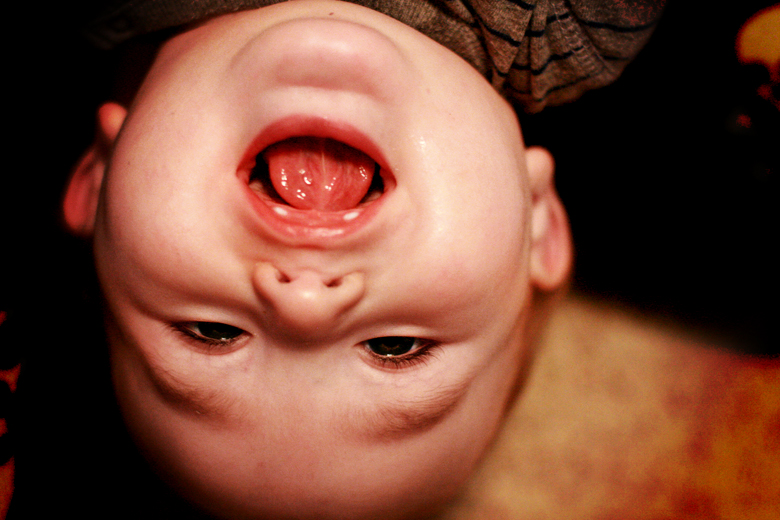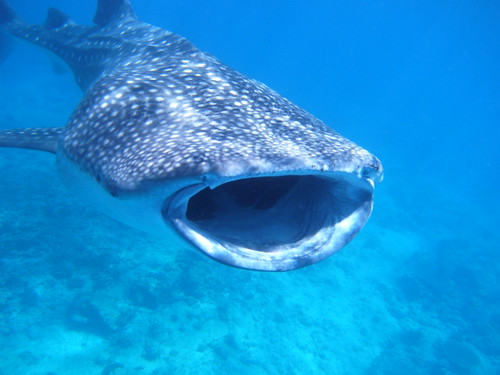
As we've been unschooling Mikko, I've come to appreciate ever more the way books and other resources allow us to follow his interests. As soon as he sparks a conversation — germs, sharks, teeth, mummies — he knows what he wants next from us: something concrete like a book or video to look at, listen to, or read with us. It's fun to try to trace the steps back as to why I checked out so many children's books about the digestive system and see how his own learning journey brought us all to study more about these various topics.
I love how he already knows that unschooling doesn't mean eschewing outside expertise or a parent's guidance. On the contrary, Mikko knows immediately that a book, online article, or YouTube video we can source for him will further his understanding and lead him into new topics of interest.
Here are some of the subjects we've been studying recently:
Mummies
 |
| Cat mummies |
So he was quite interested — both fascinated and repelled — when a children's TV show featured a mummy character. You know, the lunging horror-movie standard. He wanted to know how mummies could move like that if they were dead … and whether they'd be visiting him anytime soon. (Stupid so-called children's shows.)
First we went to an online world map. "Here we are." I pointed to the Pacific Northwestern USA. "Here's Egypt." I pointed to northern Africa. "Here's aaaaaaall this land and aaaaaaall this water to cross over to get to Egypt." I explained that mummies can't swim or cross over land — because they're dead. And dead things don't move. That's one of their enduring traits.
Next we checked a couple books out of the library — one I recommend for older kids but not as much for littles. Mummy
The other book we explored was a better fit for a preschooler: Mummies, Pyramids, and Pharaohs: A Book About Ancient Egypt
King Tut is coming this summer to the Pacific Science Center (yes, belying my insistence that mummies never migrate from Egypt, but I think Mikko will forgive my deception), so we'll definitely have to get tickets and go see. What a perfect field-trippy tie-in!
Unschooling scorecard: History, geography, comparative religions, biology. (Not to mention the usual suspects when using books, such as language, spelling, and reading comprehension.)
Poop & nutrients
 Hey, these are subjects of great interest to budding scientists.
Hey, these are subjects of great interest to budding scientists.I can't remember how the nutrients conversation started, because it was with Sam a few weeks ago, and his memory is hilariously awful. He says it was probably just a throwaway conversation, where Mikko asked something about food and Sam tried to think of an off-the-cuff answer that Mikko apparently didn't pay any attention to … and then a couple days later, he parroted it back to Sam, proving that he'd been secretly absorbing the whole time. (Hey, kind of like nutrients!)
Sam had wanted to create a way of talking about food that wasn't judgmental or prescriptive, so he chose the word "nutrients" for that. Mikko then has wanted to learn which foods have nutrients, which don't, and to rank them in a sort of hierarchy. Vegetables have the most nutrients, we've told him, and sugary snacks have no nutrients or very few. We present it as just information, not shaming him or his food choices or suggesting he has to pick one food over the other.
He's wanted to learn more about how foods have nutrients, what sorts of nutrients they are, how they power our bodies and help us grow and stay healthy, and how the body digests and uses nutrients. It's also led into some satisfying conversations about waste products of digestion, which is helpful since Mikko generally doesn't like to poop. It's good to be able to show him on a figure in a book on digestion, "Here's how the waste moves down your large intestine…" and so on, and explain why it's a good thing that our body lets it go.
I've been able to find a few decent children's books about digestion (though I'd still love to find one with those clear plastic layovers that show all the body systems stacked on top of each other, and I have to say this Uncover the Human Body
Here are some book recommendations my lovely Facebook and Twitter buddies offered up that I intend to seek out:
- Paleo Pals: Jimmy and the Carrot Rocket Ship
— supposed to be a good primer even if you don't eat a strict paleo diet
- Eat Healthy, Feel Great
— This is one of the Sears books and gives simple rules about green-light, yellow-light, and red-light foods.
- Real Food Nutrition for Kids — You can try out some sample chapters and activities.
- Eat Like a Dinosaur: Recipe & Guidebook for Gluten-free Kids
— I'm guessing this one is great for the families dealing with food allergies and intolerances
- Why do we eat? — This looks like it has some good online resources as well.
- Is Your Hair Made of Donuts? — good question!
- Janice VanCleave's Food and Nutrition for Every Kid: Easy Activities That Make Learning Science Fun
— I also would like to try some of these nutrition-based science experiments as Mikko gets older!
In the meantime, I've written my own children's book about nutrition, which uses the word nutrients, naturally. I like it a lot and hope to polish it up and find an illustrator soon. If you like to draw pictures of kids and food, let me know!
Unschooling scorecard: Biology, nutrition, physical education.
Teeth & bacteria
 Mikko has had some sad moments with his teeth. His baby teeth came in way too early (starting at three months) and have always been weak. At this point, his molars have started chipping and cracking apart. This has launched him into a lot of education about how to care for teeth, why we lose baby teeth (and why that's OK; he was truly freaked by the idea of losing any teeth), what cavities are, and what visits to the dentist are like. (Unfortunately, most children's books about visits to the dentist are all about gentle first exams, not tooth extraction surgeries. Maybe I need to write one of those, too!)
Mikko has had some sad moments with his teeth. His baby teeth came in way too early (starting at three months) and have always been weak. At this point, his molars have started chipping and cracking apart. This has launched him into a lot of education about how to care for teeth, why we lose baby teeth (and why that's OK; he was truly freaked by the idea of losing any teeth), what cavities are, and what visits to the dentist are like. (Unfortunately, most children's books about visits to the dentist are all about gentle first exams, not tooth extraction surgeries. Maybe I need to write one of those, too!)I've found a few tooth books we like. Some emphasize too much the bleeding-and-pain aspect of loose teeth (I mean, seriously? Did they have to go there?), and some are just plain boring (yawn), and some combine the two offenses. One book we read went on and on about different tooth fairy myths, but not in a helpful way, and then had several pages devoted to horrible tooth-related fears, such as having a permanent tooth come out during a wrestling match or cracking a tooth on the pavement. Again … really? In a book for little kids, you need to convey tooth first aid? Plus, a lot of them have the whole sugar = rotting teeth myth, which is so incomplete and unhelpful, as we know from our own experience (and many others', I might add, as I've reached out to the small but present community of parents aghast at their kids' poor teeth, despite good nutritional and hygiene habits). My "favorite" was the book that proclaimed the myth prominently on a page where it recommended reaching for a healthy, non-sugary snack: an apple. Um … yeah. Because fruits have no sugars, dontchaknow. Maybe some of the tooth book authors could stand to read some of the nutrition books.
I also wish I could find better books that focus on the cavity and bacteria side of things. I found some, but they often used language or metaphors that differed from ours (we tend to talk about "bad bugs" and "good bugs," but one book we checked out launched into a complicated setup with villains and saliva superheroes and the like). I found it easier in the end to stick with some of the plainer books about losing teeth or visiting the dentist, and just insert observations from our own experiences as we read along.
Here are some of Mikko's favorite tooth books, if you'd care to join us:
- Andrew's Loose Tooth
— This Robert Munsch book made him laugh the most. It's not what you would call accurate, but who doesn't love a tooth fairy who shows up in a leather jacket on a motorcycle?
- Maisy, Charley, and the Wobbly Tooth
— This Lucy Cousins book is sweet, and I appreciate how simple yet thorough it is. Charley the crocodile has a wobbly tooth so heads to the dentist, where the usual (for children's books) low-stress checkup happens. He also learns how to brush, which bothered me a bit since he learns wrong. Well, at least, according to the round motions my dentist taught me. So I substitute "round and round" for "back and forth" in the text, and we're all good. I won't spoil the ending as to what happens with his wobbly tooth, but I think you can guess it.
- Buddy Loses a Tooth (Dinosaur Train)
and Baby Teeth Fall Out, Big Teeth Grow! (Yo Gabba Gabba!)
— These I'm putting in the random children's television show tie-in category. They're random, because in both cases the creatures losing baby teeth aren't human, and their experiences don't mirror what human children experience. Buddy the T Rex doesn't have to take care of his teeth (and can eat rotting carrion) because new ones will just keep growing in their place, and the Yo Gabba Gabba guy (I haven't seen the show so forget the names) has both of his two teeth fall out at once and grow back within a day. Confusing. To me. But Mikko liked them regardless.
- Taking Care of My Teeth
— a straightforward book about dental hygiene. Our library has it dual-language in Spanish, too!
- Amanda Pig and the Wiggly Tooth
— This is an Oliver and Amanda book by Jean Van Leeuwen and is in the latest category of books Mikko's been enjoying, which is short chapter books. I'm excited that we're getting to read longer-length books; they feel so "real" to me.
- Junie B., First Grader: Toothless Wonder
— This is another early chapter book and the first Junie B. Jones book, by Barbara Park, that we read. (We've since zoomed through a few others. She has written approximately five thousand so far.) I like reading Junie B. with a Southern accent, which keeps me entertained. I don't know if Mikko totally gets her humor, but I think it's funny. He thinks she's a little weird, but I suspect she'll keep growing on him. There is a slight problem with this book in that she's initially scared of the Tooth Fairy … but I guess that worked out, because initially Mikko didn't want to check under his pillow, either.
Unschooling scorecard: Biology, hygiene, mythology (tooth fairy!), finances and math (tooth fairy money!).
Whale sharks
Just to make Mikko happy, I have to share with you his favorite type of picture of a whale shark:
(His actual favorite photo is a copyrighted one by Werner Mischler — I didn't want to post it illicitly, but you can go check it out. I do think this Flickr one by KAZ2.0 is similarly awesome.)
And here's his favorite fact: The whale shark is the biggest fish in the world.
So, now you know.
Unschooling scorecard: Shark studies.
How do you use books and other resources to follow your kids' interests? What favorite thing did you learn recently? Any book recommendations on these topics?
Visit The Positive Parenting Connection and Authentic Parenting to find out how you can participate in the next Authentic Parenting Blog Carnival!
Please take time to read the submissions by the other carnival participants:
- Books and Play — MudpieMama at The Positive Parenting Connection is sharing a fun play based activity that enhances reading comprehension, vocabulary and attention.
- Using Literature to Talk with Your Child About Money — Pam from The MoneyTrail Blog shares her 12 favorite stories to initiate conversations about money with your child.
- Reconnecting Through Reading — Reading aloud with our children has its many rewards, from increased vocabulary and reading skills to creative thinking and problem solving skills. At Living Peacefully with Children, reading is also a time to reconnect at the end of the day.
- It’s a Book Party — Valerie at Momma in Progress shares a fun way she encourages reading at her house.
- The Importance of Storytelling — Jennifer at Hybrid Rasta Mama discusses the importance of storytelling as well as how to select a book worthy of reading with your young child.
- How to Raise a Bookworm — Becky at Old New Legacy shares ideas and experiences in her attempt to raise a bookworm.
- The Joy of Books — Carrie @ LoveNotesMama shares her enthusiasm and adoration for the joys and gifts that children's books bring.
- Books, Have They Become Obsolete? — Laura at Authentic Parenting investigates wether there's still room for books in this modern world of internet and digital readers.
- Books and Unschooling a Preschooler — Lauren at Hobo Mama follows her four-year-old's lead through mummies, digestion, and whale sharks.
- How Books Help Us Live and Learn — Sheila of A Living Family describes how, more than helping her children learn to read, books help her family live and learn together.
- Once Upon a Time, There Was a Princess With a Career Plan... — Helen @ zen mummy wonders how — and if — the tales our children hear influence their future.









 I'm Lauren Wayne, writer and natural parent. I embrace attached parenting with an emphasis toward green living.
I'm Lauren Wayne, writer and natural parent. I embrace attached parenting with an emphasis toward green living. 


5 comments:
This is awesome, Lauren! Books are such an amazing resource, and I loved following along to see how they helped you explore different topics with Mikko.
us, so far, books have tended to be the springboard for digging deeper into subjects, rather than our primary tool for doing so. We love books, and Annabelle latches on to certain things we read about often, so we end up digging deeper. Youtube is our favorite tool for doing so at the moment, I'd say. Recently A seemed quite interested in the idea of chicks hatching from eggs, so we pulled up some videos and ended up watching chicks, robins, emus, and a host of other birds hatch. Fascinating for both of us!
I should think about the bacteria thing... good idea. This is sometimes an issue at our house ;)
About the mummies: another thing my daughter really liked is watching how to make a mummy movies on youtube. There are a couple of nice ones on there made by students. They explain in kiddo terms what's done to the farao to make him a mummy.
ANd the death thing, I hear you!!! My daughter wants to revive my dog who died when she was still in utero.
I should think about the bacteria thing... good idea. This is sometimes an issue at our house ;)
About the mummies: another thing my daughter really liked is watching how to make a mummy movies on youtube. There are a couple of nice ones on there made by students. They explain in kiddo terms what's done to the farao to make him a mummy.
ANd the death thing, I hear you!!! My daughter wants to revive my dog who died when she was still in utero.
What a cool mom you are to include his favorite photo and fact about sharks! Great post...can't wait to check out some of these books for my kids.
I have totally bookmarked this! I am just starting to explore nutrition and the digestive process with Tiny and your approach is really awesome. I like how you go about using books (and media) to unschool a preschooler. Tiny already loves her little picture encyclopedias and loves to learn the names of animals, places, landmarks, etc... Great post!
Post a Comment